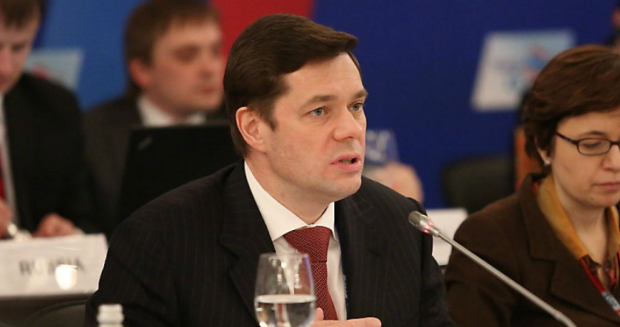
Mordashov’s son is conscripted, booted out of family business
Nikita Mordashov is one of the most privileged children on the planet: his father, Alexei Mordashov controls steelmaker Severstal and is ranked the fourth richest person in Russia by Forbes magazine with an estimated fortune of $16.8 billion. But this week Nikita was sent off to do military service and stripped of his stake in the family business. This is a unique way of treating your children in Russia. Why is Mordashov behaving so differently?

- The 20-year-old Nikita was kicked out of Moscow’s prestigious Higher School of Economics where he was enrolled on a joint program with the London School of Economics, Forbes reported last week. Nikita was among the worst students on the course last year with an average grade of 2.6 out of 10.
- In Russia, military service is compulsory for men under the age of 27, unless they are in higher education or are in bad health. In practice, though, corruption means exemption documents are widely available if you can pay. There’s even a widespread Russian expression — otkosit ot armii — that means buying one’s way out of conscription.
- Elsewhere in the world, Mordashov Jnr’s story might be unremarkable, but in Russia it’s a sensation — wealthy Russian parents traditionally use their money and influence to smooth the path for their children.
- It also emerged that Nikita has been deprived of his stake in KN Holding, which owns about 65 percent of Mordashov’s gold-mining company Nordgold. His share was worth about $500 million. Now, KN Holding is solely owned by his elder brother, the 21-year old Kirill Mordashov. When he transferred the shares in 2019, Alexei Mordashov said he was doing it to get his sons involved in the family business.
- Mordashov is very different from his fellow billionaires, as journalist Paul Khlebnikov, founder of Forbes Russia, noticed back in 2004 (Khlebnikov was murdered a few months later, but that was not linked with his opinions on Mordashov). The businessman was born in Cherepovets, a polluted industrial town to the north of Moscow where his parents, like everyone else, worked in the local steel plant. After graduating in 1988, he returned to the same steelworks as an economist. The plant later became Severstal.
- Mordashov was a protégé of Yury Lipukhin, the then director of the factory. Appointed finance director in 1992, he suggested setting-up a subsidiary company to buy up Severstal shares owned by its unpaid workers. In time, this subsidiary company became Severstal’s sole owner. In 1996, Lipukhin turned 60 and handed control of the company to Mordashov (although he retained a 49-percent stake).
- A few years later, Mordashov bought shares for himself without warning Lipukhin, and forced his one-time mentor to sell up his entire stake at a fraction of its market value.
- It sounds like an ugly business, but Mordashov insists he broke no ‘gentleman’s agreement’ because nothing of the sort existed. And in the context of the ‘wild 1990s’, when abduction and murder were common in business disputes, this was a rather sedate disagreement. Even so, Mordashov is no angel: in Navalny’s recent investigation into Putin’s palace, Mordashov is named as one of the donors.
- The legacy of Russia’s post-Soviet oligarchs is a fascinating question. Right now, this generation is about to find out whether Putin will guarantee their assets if they pass them to their children. Several billionaires, including Vladimir Yevtushenkov (who owns conglomerate AFK Sistema) and Leonid Fedun (who has a stake in oil giant Lukoil) have already transferred part of their fortunes to offspring. Chicago professor Konstantin Sonin told The Bell that Russia’s finances might benefit more from a hefty inheritance tax than progressive taxation (about which there is ongoing discussion).
Why the world should care
Amid speculation about how Russia’s ageing post-Soviet oligarchs will transfer their wealth, the Mordashov story has attracted significant attention. It highlights an interest in how Russia’s super-wealthy lead their lives, and some of the long-term issues facing big business.




